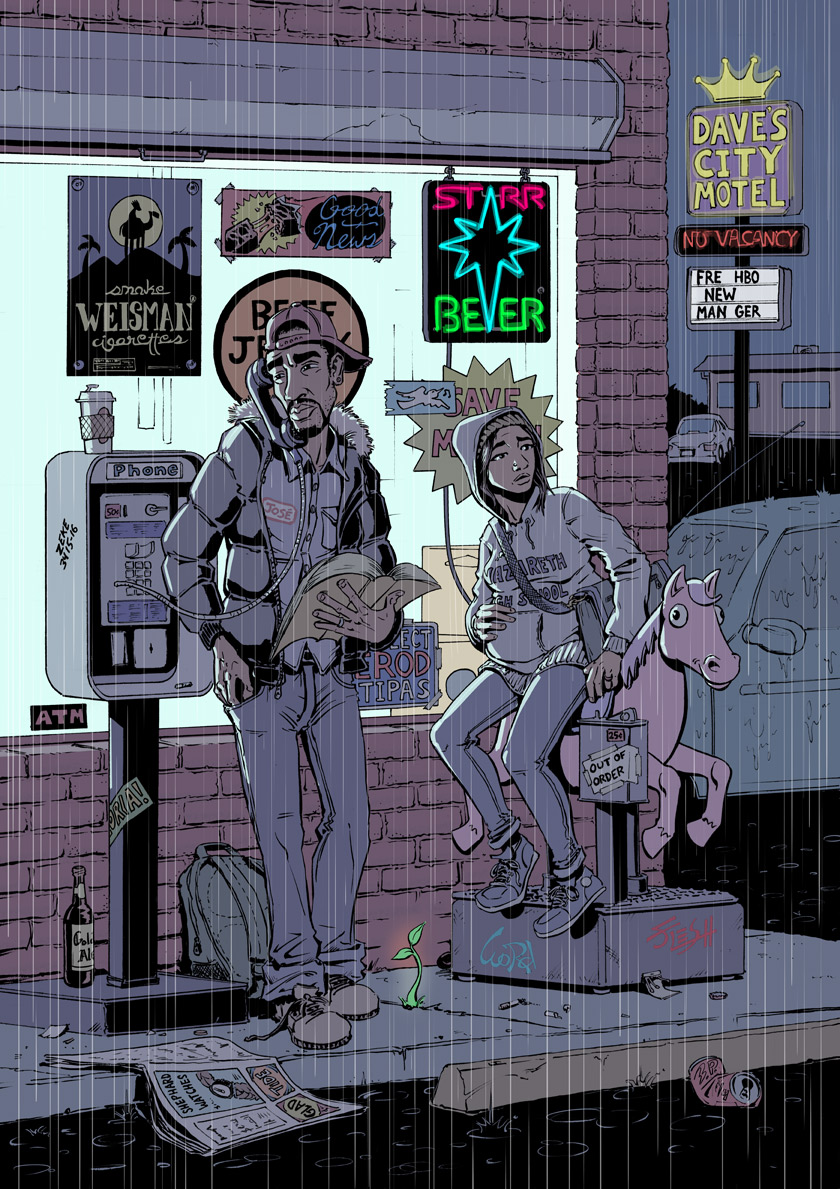
“José y Maria” by Everett Patterson
Our readings in Advent have spread from the terror of the ascendance of the Assyrian Empire and the eventual defeat and deportation of the Hebrew people under the consequent Babylonian empire. Jeremiah, prophet then, wrestled with the question of hope – how do we hope, and trust, in God’s goodness, faithfulness and love when evil, darkness, and chaos seem ascendant in the world? Last week we heard the climactic existential faith choice of Esther, confronted with her vocation to act up and speak out when the Hebrew people faced genocide under the Persian Empire (which replaced Babylonia). God is not absent in history, but possibly hidden, made manifest through our actions, speaking and relationships.
Today we return to Isaiah (the Babylonian time) and the promise that emerges of a return home from foreign enslavement, a promise of a mighty leader to lead the people across the desert dividing them from freedom in the promised land. This “leader” is sung (or poetriezed) as the “Servant of the Lord” in Isaiah 40-55, and in particular in our chapter 42 selection today. This Servant will do God’s will, live out the Torah teaching on life, bring about the freedom desired by the God who was, is and is to come; create the fierce community centered in the essence of the God of the widow, the orphan and the refugee. As Christians, we understand this prophetic poem to speak of the Christ to come: Jesus of Nazareth. But Jewish thought interprets this open-worded metaphor to indicate Cyrus of Persia (who would defeat Babylon and the send the Hebrews to restore their homeland) or as a different Messiah (promised King) to come, or even as the representation of the people of God, through whom the LORD will bring about this new creation.
The reading from Luke expands the portrait of John the Baptizer. The latter calls his audience to repentance and conversion: to radically reorient the direction that their lives are taking in terms of their ethics, morality and faith. He announces the coming of Isaiah’s Servant of the Lord both as the Messiah to be born, and the way in which the people of God enact this new creation through living as God is. God is made manifest explicitly and implicitly, through divine action and through our actions today (just like Esther).
Questions for the practice of Examen & Contemplation
- What shimmers in your attention to these readings?
- How do you recognize something as “of God”?
- Do you wait for God to act implicitly or explicitly in the world, directly or through others?
- How is the Christmas Story one we are invited to retell with the text and with the open book of our lives?
- How is the Spirit of God inviting you to act, speak or be through these scriptures?
Download the Textual Study Sheet we’ll use in our class discussion @CAPCOakland [HERE].